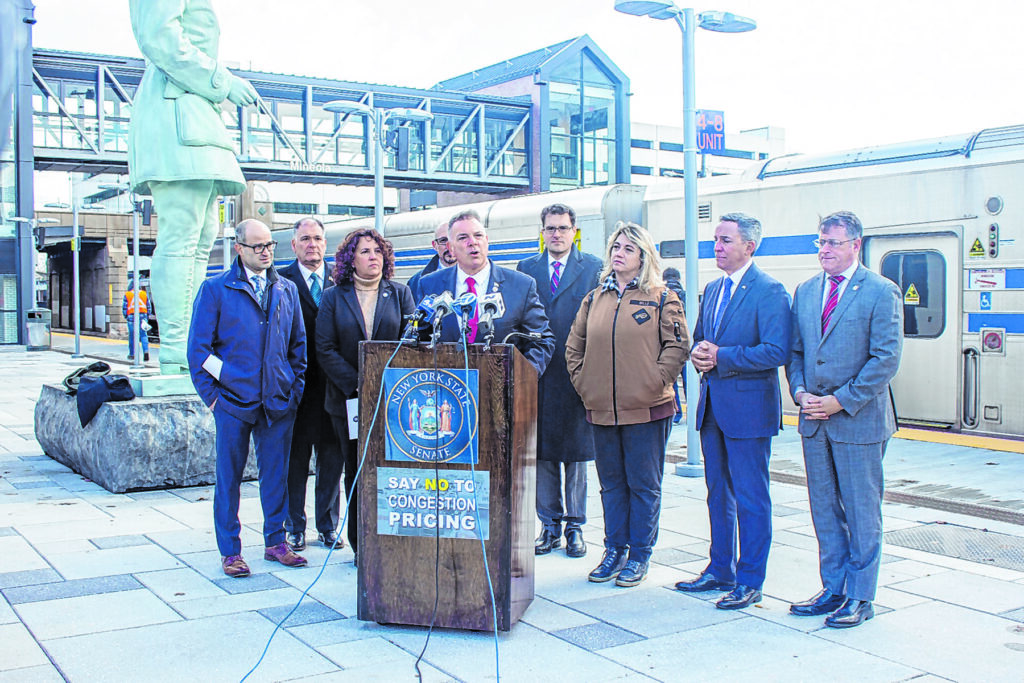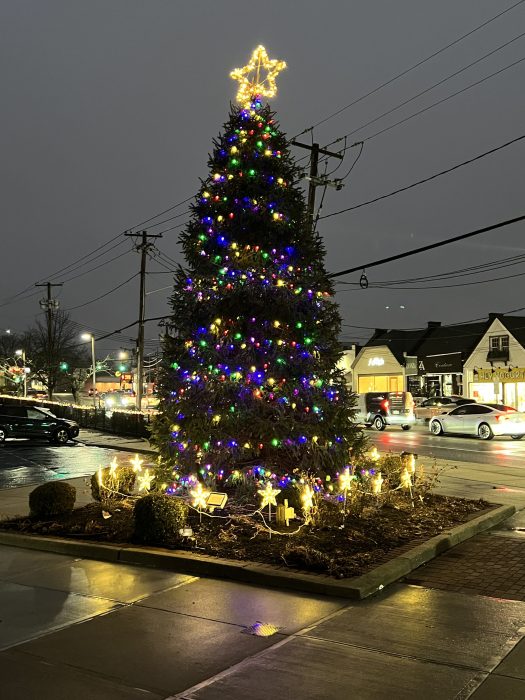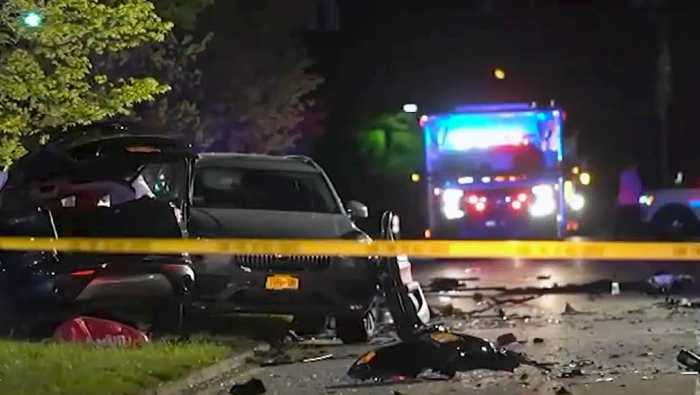On Monday, Dec. 11, Long Island’s New York State Senators, New York State Assemblymembers and Cathy Powell, President of the Wantagh Chamber of Commerce, gathered to call on the governor to end her support for the Metropolitan Transit Authority’s New York City Business District Tolling Program, also known as congestion pricing.
This new tax implemented by the MTA will cost Long Island commuters, delivery drivers, taxi drivers, tour buses and rideshare drivers up to $36 per day to enter anywhere south of 60th Street, Manhattan, including the financial district.
New York State Senators and Assemblymen are encouraging residents to voice opinions and make their voices heard during this 60-day public comment period taking place through the Triborough Bridge and Tunnel Authority.
“Congestion pricing is just Albany’s latest attack in their long war on New York’s suburbs,” said 7th District State Sen. Jack Martins. “Long Island always gets stuck holding the bag for the NYC-driven mistakes from Albany – today we again say, ‘enough.’”
According to the MTA, congestion pricing will improve quality of life by reducing traffic in Manhattan’s most congested areas. Fewer cars, the MTA states, means cleaner air, safer streets, and better transit throughout New York City.
“Drivers who pay the toll will spend less time sitting in traffic, and other vehicles — such as buses or emergency vehicles — will be able to move faster,” a press release from the MTA states. “The program will also raise revenue to fund $15 billion for critical transit projects, such as upgrading to the signaling system, accessibility improvements, and expanding access to the transit system.”
The press release added that vehicles that enter the Central Business District will be tolled using E-ZPass. If the driver does not have E-ZPass, toll bills will be mailed to the address of the registered vehicle owner using Tolls by Mail.
The MTA Reform and Traffic Mobility Act requires MTA’s Triborough Bridge and Tunnel Authority (TBTA) to design, develop, build, and run this program. The act also designates that passenger vehicles only be charged once each day for entering or staying in the Central Business District, the toll rates must change at different times and days, residents making under $60,000 receive a tax credit for tolls paid and emergency vehicles and vehicles transporting people with disabilities not be charged.
A report from the Traffic Mobility Review Board recommends that passenger vehicles are charged $15 and trucks are charged $24 to $36. Buses providing transit or commuter services will not be charged, but other buses will be charged $24 to $36. Motorcycles are recommended to be charged half of a passenger vehicle. Yellow taxis, green cabs and black cars will be charged $1.25 and ride-shares will be charged $2.50, 24 hours a day.
And drivers who paid a tunnel toll will receive a partial credit towards the congestion toll.
“Congestion toll rates should apply during the most congested times of the day – from 5 a.m. to 9 p.m. on weekdays and from 9 a.m. to 9 p.m. on weekends,” the report states. “Toll rates should be 75 percent lower in the nighttime.”
Congestion pricing will likely begin in the spring.
State Senators, Assemblymembers Speak Out Against Congestion Pricing

Long Island’s New York State Senators, New York State Assemblymembers and Cathy Powell, President of the Wantagh Chamber of Commerce, held a press conference at Mineola Station to criticize the MTA’s congestion pricing.
(Photo courtesy the New York State Senate)


































